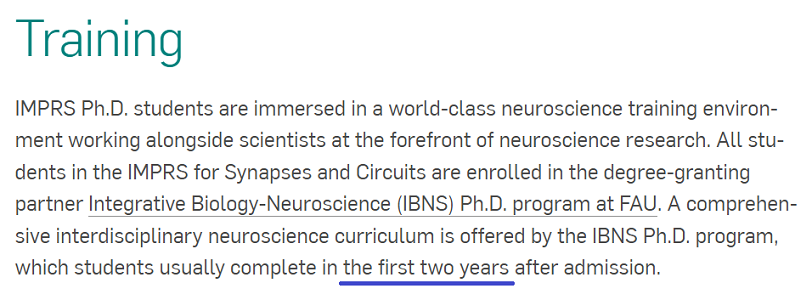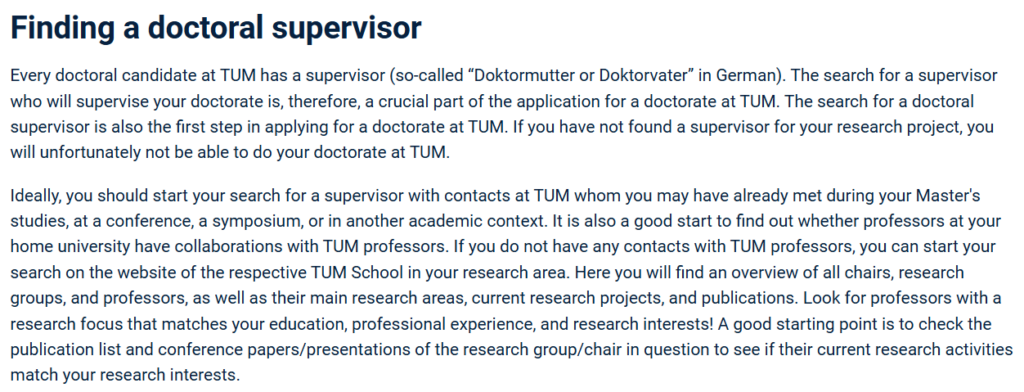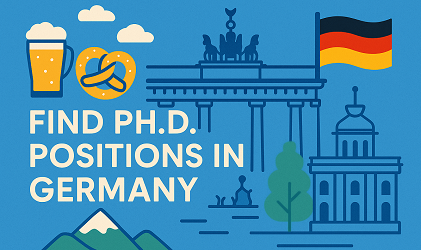Germany’s reputation as a global leader in research (especially in chemistry and physics) makes it an ideal destination for a PhD in Germany. Germany is a hub for groundbreaking research due to its commitment to innovation, making it an ideal destination for a PhD. Every year, thousands of PhD candidates are drawn to Germany by the country’s generous funding and tuition-free public university education. Germany is renowned for its cutting-edge research facilities, PhD programs, and welcoming atmosphere for international students. From comprehending the academic system to navigating the application process, this article will guide you through a PhD journey in Germany. A PhD in Germany provides a special fusion of professional development and intellectual rigor.
Why Choose a PhD in Germany?
Global Reputation and Academic Excellence
A PhD from Germany is extremely prestigious since the country’s higher education system is known throughout the world for its academic excellence. Some of the best global universities are located there, including Heidelberg University (#66), Ludwig Maximilian University of Munich (#69), and the Technical University of Munich (#41 by the a-index Global University Rankings). With the help of prominent organizations like the Max Planck Society and Fraunhofer Institutes, PhD students join a thriving global academic community. These institutions promote intellectual independence by providing cutting-edge facilities and intimate mentoring from top researchers. International students can enroll in almost all of Germany’s PhD programs because they are offered in English. Germany’s dedication to multidisciplinary research promotes creativity and investigation in cutting-edge domains.

Financial and Practical Advantages
Nearly all PhD positions in Germany are fully funded and frequently come with a stipend, and students can concentrate on their research. Students from all over the world can now affordably and sustainably pursue a PhD in Germany thanks to diverse financial support models. Students who self-fund their PhD at German public universities do not need to pay tuition and fees. There are only minor administrative expenses (€100-350 per semester). A large portion of this cost is reimbursed to the self-funded students as a free state-wide public transportation ticket. Additionally, Germany has a robust economy, low unemployment rates, and promising career opportunities after graduation. Employability is greatly increased for German PhD graduates.
PhD in Germany: Basics
While there is a strong focus on research, PhD positions in Germany are frequently treated similarly to job employment. Although PhD candidates are not normally considered employees in the conventional sense, they frequently have contracts that include benefits, a stipend or salary, and occasionally even contributions to a pension, especially in structured PhD programs (see below). The conditions can feel a lot like an employment contract, but the main focus is still on research and finishing the PhD.
Types of PhD Positions in Germany
There are two kinds of PhD positions in Germany: (i) structured PhD programs and (ii) individual PhDs. Both formats are offered by universities and non-university research institutes in Germany; however, PhD research project positions account for over 75% of PhDs. Although structured programs were first developed primarily in the natural and biological sciences, they are also becoming more prevalent in the humanities, social sciences, and law, where individual PhDs have historically been the norm. You will reach your goal, i.e., your German PhD, in either case. Let’s have a deeper look into these pathways, a PhD in Germany:
Individual PhDs in Germany
In Germany, the individual PhD is a traditional model in which students work under a single supervisor’s guidance. There are no required coursework requirements for this kind of PhD in Germany, giving you more freedom to select your schedule. Under this model, securing PhD positions in Germany frequently entails reaching out to professors directly. This model is appropriate for highly self-motivated PhD candidates. However, autonomously managing research progress necessitates strong organizational abilities. Depending on the field of study and rate of research pace, a full-time funded individual PhD normally lasts 3 to 3.5 years in Germany. Universities like the University of Freiburg, Heidelberg University, and the Free University of Berlin offer excellent support for individual PhD candidates in Germany.
Structured PhD Programs in Germany
Structured PhD programs in Germany are indeed in a semi-structured format, similar to English-speaking countries (see PhD in Australia and PhD in UK guides). Germany’s universities, like TU Munich (TUM) and TU Darmstadt, and non-university research institutions, such as the Max Planck Society and Fraunhofer Institutes, offer such programs in English. They are well-suited for international students seeking a clear academic path and are often fully funded and salaried. Remember that research institutes/centers hire PhD candidates in collaboration with German universities because they are not permitted to award German PhD degrees. As mentioned, taking courses and training modules is compulsory. For example, the International Max Planck Research School for Synapses and Circuits (IMPRS-SC) explicitly says that:
This coursework phase is followed by an independent research, leading to a dissertation and PhD viva. The structured format, with regular supervision and collaboration, is ideal for students who prefer organized academic environments over merely independent research. These programs often emphasize interdisciplinary collaboration and ensure that students are thoroughly prepared for the research phase. Students work within research groups on large-scale projects, which enhances both the quality and scope of their doctoral work. Some universities like TUM only offer structured PhD programs, while others like Heidelberg University and TU Darmstadt offer both PhD formats. Therefore, explore universities’ website for further details.
Fast-Track PhD in Germany
If you have a bachelor’s degree with an exceptional CV, you might consider fast-track PhD programs in Germany. Several German universities offer fast-track or direct PhD programs, allowing outstanding bachelor’s graduates to pursue a PhD in Germany without completing a separate master’s degree. These programs integrate the master’s phase into the doctoral program. As a subcategory of the structured PhD in Germany, they are comparable to direct PhDs in the US and 5-year PhD tracks in France.
For accurate and current information about fast-track PhD in Germany, it is strongly advised to visit the websites of the universities and researched institutes you are interested in. For example, Universität Hamburg is a notable example with its 4-year fast-track PhD program. A research institution with 5-year fast-track PhD is the Max Planck School Matter to Life. Conversely, TUM states clearly that:
Please note that TUM does not offer “fast-track doctoral programs”. Therefore, admission to a doctoral program with only a Bachelor’s degree is not possible. Source: TUM Doctorate Application Requirements
Eligibility Criteria and Requirements for a PhD in Germany
In Germany, a doctorate typically requires a master’s degree in a relevant field, though exceptional bachelor’s degree holders may be considered in fast-track programs. The majority of German universities and research institutes place more weight on your research experience, number of publications, research proposal (if required), and motivation letter than they do on GPAs or language proficiency tests, in contrast to PhD programs in the USA, Canada, the UK, and Australia. Even with structured PhD programs, the majority of a PhD is research-based in Germany, so language proficiency tests are typically not necessary. For example, let’s have a look at the minimum language requirements of the TUM and the IMPRS-SC:
TU Munich (TUM), Source: https:/gs.tum.de/
There are no formal language requirements for doctoral admission and research at TUM. However, a doctorate at TUM requires very good written and spoken English skills. Although there are usually no prescribed minimum scores in the relevant tests (IELTS, TOEFL, etc.), to be successful in your doctorate, you should be able to understand, write, and communicate fluently in English with your supervisor, colleagues, TUM staff, and the general scientific audience.
Knowledge of German is not required but a great advantage to manage your everyday life in Germany.
IMPRS-SC, Source: https://mpfi.org/
English language proficiency test results (TOEFL, IELTS, etc.) and GRE scores are not required for the online IMPRS application, but these scores may be provided by applicants if available.
German language proficiency, as measured by tests like TestDaF, may be required for some programs, especially in the humanities. As a result, never forget to verify the particular program requirements for a PhD in Germany. Additional requirements, such as relevant work experience or specialized skills (such as programming for AI research), may be applicable for PhD positions at research institutions in Germany. For individual PhD applications in Germany, a strong research proposal that highlights your area of interest and fits in with faculty knowledge is crucial. Securing a doctorate in Germany also requires strong recommendation letters, of which two are typically sufficient.
Application Process for a Doctorate in Germany
Application Documents and Deadlines
Most German universities and research institutions have online application portals for structured PhD and individual PhD research project positions, where you submit documents like degrees, transcripts, CV, research proposal, and a motivation letter. Ensure all documents are error-free and tailored to each PhD position. There are no specific deadlines for PhD research project positions in Germany, as at any moment, a research supervisor might have positions and advertise them. Nevertheless, for structured and semi-structured PhD programs, check a university or research institute’s website. For instance, the IMPRS for Infectious Diseases and Immunology (IMPRS-IDI) says: “Submit your application between 15 November and 3 January (referees have until 8 January to submit their references)“.
A strong motivation letter is critical for a PhD application in Germany, outlining your research interests, career goals, and alignment with the structured PhD program or individual PhD. Letters of recommendation from academic mentors are also essential for a PhD in Germany, ideally from professors familiar with your research capabilities. After submitting your application for a doctorate in Germany, you may be invited for an interview, often conducted via Zoom, Microsoft Teams, or in person. If that is the case, prepare to discuss your research proposal and fit for the PhD program.
Contacting Supervisors
Some universities that offer structured PhD programs through their graduate schools might require you to contact supervisors to discuss your research proposal and get their acceptance to be your PhD supervisor. Identify supervisors (assistant, associate, and full professors) whose research aligns with your interests by reviewing their publications, research profiles (e.g., Google Scholar, Scopus, or ResearchGate), and university profiles. When emailing supervisors, highlight your qualifications and how they match the professor’s research group. Attach a CV and a concise research proposal to demonstrate your readiness for a PhD in Germany. Here is a screenshot from TUM’s website, asking PhD applicants to find a future supervisor (so-called “Doktormutter or Doktorvater” in German):
Applyindex gives candidates a single, smart platform to manage and navigate their process when applying for the PhD in Germany. It effectively and consistently assesses the quality of your resume, calculates your likelihood of receiving funding, creates a data-driven Word document of your resume, demonstrates how to locate a supervisor who has research grants, emails them automatically on your behalf, arranges your notes, and performs numerous other tasks during your application process. Read the article “How Applyindex works for applicants” for details.
PhD in Germany by Discipline
Germany is a great place for PhD candidates in various scientific and engineering fields due to its robust research ecosystem and industrial leadership. In addition to being academically demanding, doctoral programs in Germany are also related to real-world, practical applications, especially through partnerships with major corporations in the field. The following are important fields where Germany shines, providing excellent research opportunities and direct routes to top international corporations.
PhD in Chemistry in Germany
With companies like Merck and BioNTech based there, Germany is a global leader in industrial chemistry and chemical research. In Germany, a PhD in chemistry usually entails conducting cutting-edge research in fields like pharmaceutical chemistry, materials science, nanotechnology, or catalysis. Universities like RWTH Aachen and research centers like the Max Planck Institute for Chemical Energy Conversion provide state-of-the-art facilities and interdisciplinary cooperation. Graduates are in great demand in both academia and industry, frequently landing jobs in R&D for pharmaceuticals, biotech innovation, or chemical manufacturing. PhD graduates are actively sought after by organizations such as BioNTech and Merck, especially for their departments that prioritize innovation.
PhD in Physics in Germany
Germany provides outstanding opportunities for physics PhD candidates, particularly through its nationally and internationally recognized research centers and renowned institutes. Particularly well-known fields include particle physics, solid-state physics, and quantum optics. World-class settings for theoretical and experimental physics are offered by organizations like the Max Planck Institute for Physics and DESY (Deutsches Elektronen-Synchrotron). A PhD in physics can lead to employment in high-tech sectors like semiconductors, optics, and aerospace, in addition to academia and research labs. Graduates frequently land jobs at organizations like Zeiss, a world leader in precision engineering and optical systems.
PhD in Automotive and Mechanical Engineering in Germany
Germany is a top choice for PhD candidates in mechanical and automotive engineering due to its leadership in automotive innovation. This field’s research frequently focuses on topics like manufacturing technologies, electric mobility, lightweight materials, and autonomous driving. Close industry partnerships with businesses like Mercedes-Benz, Porsche, and BMW benefit PhD students, who frequently collaborate on joint research projects while pursuing their degrees. Prominent universities with direct connections to industry, like TUM and Karlsruhe Institute of Technology (KIT), provide structured PhD programs. Candidates are prepared to work in Germany’s renowned automotive industry in R&D, product development, or systems engineering positions after graduation.
How to Find a PhD in Germany
Dedicated online portals such as Applyindex, DAAD, and Euraxess make it easier to find a PhD position in Germany. The DAAD database provides comprehensive information on funding and requirements for thousands of PhD opportunities in Germany across all disciplines. Euraxess offers PhD jobs throughout Europe, including Germany. Otherwise, Applyindex advertises PhD positions worldwide, including in Germany, for both programs and individual research projects. These portals streamline and facilitate the process of looking for a PhD in Germany. You can avoid missing application deadlines by routinely checking these platforms. You can stay informed and save time by setting up alerts for pertinent PhD positions in Germany. Another important source for locating PhD opportunities in Germany is university websites.
Funding Options for a PhD in Germany
Most PhD positions in Germany are fully funded, often with salaries from research institutions like the Max Planck Society and the Helmholtz Association that treat candidates like employees. Universities also offer paid PhDs through research funding, which are supervised by research supervisors and typically pay about €1,500 per month, enough to cover living expenses. Competitive scholarships from the DAAD, such as Research Grants and Doctoral Programs, can pay up to €1,400 (tax-free) a month and cover health insurance and travel expenses. Applying early, keeping up a stellar academic record, and writing a compelling motivation letter all significantly improve your chances of landing a stress-free, fully funded PhD in Germany.
The Alexander von Humboldt Foundation, industry alliances, university-specific awards, and EU grants can all contribute extra money. For instance, international students can explore country-specific scholarships, such as the Fulbright Germany program, for a PhD in Germany. These awards foster academic exchange and support research projects during a PhD in Germany. Applying for multiple scholarships increases your chances of funding a PhD in Germany. Private foundations and industry partners also offer grants for PhD candidates, particularly in STEM fields. For example, the Volkswagen Foundation funds innovative research projects for a PhD in Germany.
German Visa Requirements for International PhD Students
To study for longer than 90 days while pursuing a PhD in Germany, international students usually need a student visa (Visum zu Studienzwecken). German embassies or consulates handle application processing. To obtain a PhD visa in Germany, one must provide proof of financial resources for those who self-fund their PhD (€992 per month), health insurance, and a hosting agreement from the university of admission (i.e., proof of financial resources). A current passport, biometric images, and evidence of funding for your doctoral studies are required. Plan early to start your PhD in Germany on time because visa processing times can range from 6 to 12 weeks.
After arriving in Germany, PhD candidates need to apply for a residence permit and register with the local town hall. This permit is good for the three years that you normally spend pursuing your doctorate in Germany. If you need more time to finish your PhD in Germany, you can request an extension. While pursuing a PhD, foreign students are permitted to work in Germany up to 120 full days or 240 half days annually, helping them cover their living expenses during a PhD program in Germany. For the most recent information on visa requirements for a PhD in Germany, always check with your local German embassy or consulate.
Living as a PhD Student in Germany
A PhD in Germany provides a stimulating and encouraging academic environment. The majority of PhD students reside in university cities with monthly living expenses between €800 and €1,400, such as Berlin, Munich, or Heidelberg. A PhD in Germany is financially feasible thanks to reasonably priced housing options like shared apartments or dorms for students. In Germany, a lot of universities offer PhD students support services, such as housing assistance. The multicultural setting of Germany improves the experience of pursuing a PhD there, as international student communities encourage networking and teamwork. To assist students, German universities provide career workshops, cultural events, and language classes. During their journey, these resources support students’ success and integration.
German PhDs place a high value on work-life balance, with institutions promoting time management and overall health. To enhance their academic experience, PhD students in Germany frequently attend conferences, seminars, and workshops. Living in Germany is fulfilling because of the social activities and cultural exploration it offers, such as going to castles and festivals. Graduates take advantage of Germany’s robust employment market. A PhD in Germany is a springboard to jobs in academia, business, or research due to its low unemployment rate and need for qualified workers in giants like Mercedes-Benz, BMW, Merck, BioNTech, and many more. A Job-Seeker visa for PhD graduates in Germany makes it possible to remain in the country for 18 months after completing their studies.

Tips for Success in a PhD in Germany
There are obstacles to overcome when pursuing a PhD in Germany, like navigating the country’s competitive application process for PhD positions. To stand out in a PhD application in Germany, you must have a compelling research proposal and customized application materials. Balancing research, coursework, and personal life during a PhD in Germany is difficult, so time management is also essential. Even in English-taught programs, language barriers can be a problem for a PhD student in Germany because everyday life may call for a basic understanding of German. This transition can be facilitated by taking language classes in Germany before or during your PhD. For PhD students in Germany, universities frequently offer free or heavily discounted German classes.
Conclusion
A PhD in Germany provides a special fusion of international research opportunities, academic brilliance, and useful career benefits. International students benefit from a welcoming environment, affordable tuition, and access to top-notch research facilities because the majority of PhD positions are fully funded and taught in English. Germany offers the adaptability, resources, and professional network required for success, whether through individual PhDs (i.e., PhD research projects) or structured PhD programs. Germany is a great place for aspirational students because of its thriving academic community, solid industry ties, and employment opportunities after graduation. A PhD in Germany can be a life-changing academic and professional experience if it is planned for, applied for, and actively pursued.
Frequently Asked Questions (FAQs)
Do I need to speak German to pursue a PhD in Germany?
No. Most PhD programs, especially in STEM fields, are offered in English. However, basic German is helpful for daily life.
Are PhD positions in Germany fully funded?
Yes. Many PhD positions are salaried or come with stipends from universities or research institutions like Max Planck and Helmholtz.
What is the difference between individual PhDs and structured PhD programs in Germany?
An individual PhD in Germany focuses solely on research under a single supervisor, while a structured PhD program include coursework, seminars, group research under supervision of multiple supervisors, and training modules.
Can I stay in the country after completing my PhD in Germany?
Yes. Germany offers job-seeker visas and excellent post-PhD career opportunities in both academia and industry.





